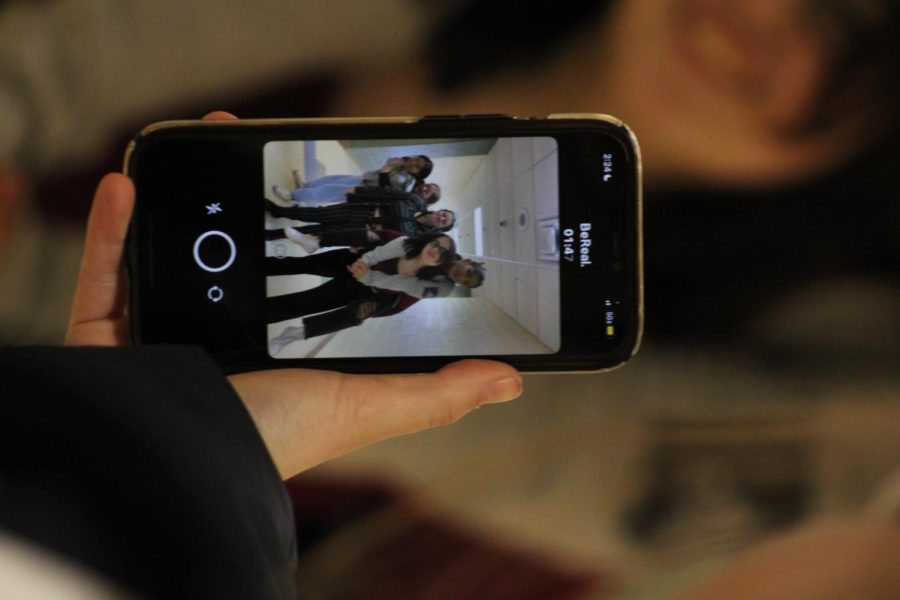Is BeReal for real?
Neshaminy High School students taking their BeReal before the 2-minute timer ends.
February 14, 2023
This past summer, BeReal stormed Apple’s App Store and soared in popularity. Marketed mainly to teens, the app promises its users a “real” view into the lives of others not plagued by so-called “fake-ness”.
The thing that makes BeReal so different from many other social media platforms is that it only allows users to post at a certain time of day. The time is random, and a notification is sent out once every 24 hours. Users are sent a notification that reads “Time to BeReal” and have two minutes to post a picture of themselves using both the front and back cameras.
It is believed that this makes the app more “real” because users are forced to post whatever they are doing at the time, no matter how un-glamorous they may be. Many professionals hope that this real-ness will help counteract the negative effect social media platforms have had on the mental health of their users.
BeReal pushes its users to post whatever they are doing at the time by differentiating all posts not created during the moment as “Late BeReals.” Users are encouraged to post daily because they can only view the posts of their friends and peers if they post a BeReal themselves.
Creators Alexis Barreyat and Kévin Perreau claim that they created BeReal with the goal that people would use it to connect with friends and family without filters, followers, or likes.
With the slogan, “not another social network” Barreyat and Perreau hoped to create a less “toxic” form of social media where people do not feel forced only to post when they are out and about.
BeReal has shown unmatched growth over the past year. Despite being launched in 2020, Apptopia reports that over 65% of users joined in 2022 or later. Even within the past few months, BeReal’s monthly users have supposedly grown by 315%.
However, BeReal has faced an interesting challenge in its remarkable growth: seeing the popularity of the timer-based posting, social media platforms like Instagram and TikTok have released blatant copies of BeReal under the names Instagram Candid and TikTok Now, respectively.
Without a copyright or patent to their idea, Barreyat and Perreau have little protection from these plagiarizing corporations. It can only be hoped that BeReal can overcome the goliath-sized challenge these copiers face to its future and continue to grow into a major social media platform.


